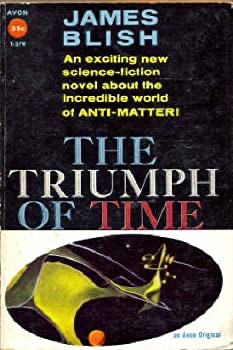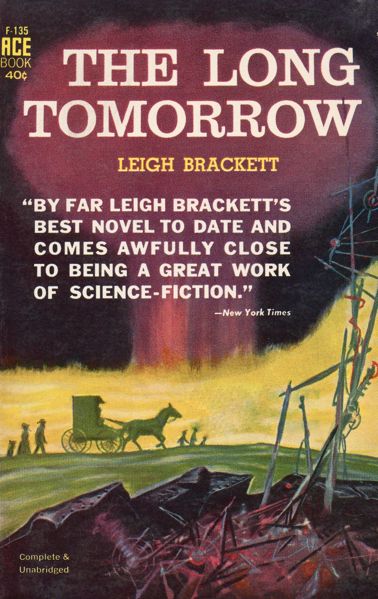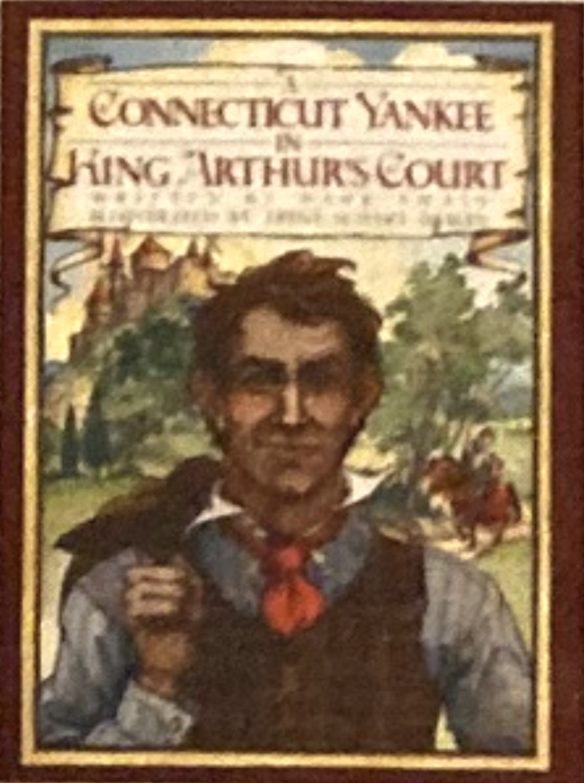By John Hertz: We’ll discuss three Classics of Science Fiction at Loscon XLVII, one discussion each. Come to as many as you like. You’ll be welcome to join in.
Our working definition is: “A classic is a work that survives its own time. After the currents which might have sustained it have changed, it remains, and is seen to be worthwhile for itself.” If you have a better definition, bring it.
Each of the three is famous in a different way. Each may be more interesting now than when first published. Have you read them? Have you re-read them?
James Blish, The Triumph of Time (1958)

It’s Blish’s centennial year (1921-1975). Here he imagined you could go much faster than light – if you had the mass of a city. This is the last in the “Cities in Flight” series. Is it the best? What about “SF stories never end”?
Leigh Brackett, The Long Tomorrow (1955)

There are no surprises at all in the first part of this book. But don’t think for a moment that Brackett’s poetic power is all that redeems it. A.J. Budrys said “Always ask ‘Why are they telling us this?’”
Mark Twain, A Connecticut Yankee in King Arthur’s Court (1889)

Is this “a keen and powerful satire on nobility and royalty”? What about the King at the hut? Theodore Sturgeon said “Science fiction is knowledge fiction”. You might like to see my note on this book written a few years ago.
[Thanks to Scott Beckstead for the story.]
Discover more from File 770
Subscribe to get the latest posts to your email.

Does it seem odd to anyone else that Ace used so much of that NYT review for the blurb. I’m no pro, but I’d have stuck with “…Bracket’s best novel to date…” NYT.
Brown Robin says Does it seem odd to anyone else that Ace used so much of that NYT review for the blurb. I’m no pro, but I’d have stuck with “…Bracket’s best novel to date…” NYT.
As someone who’s been quote by Ace and had an entire long sentence reduced to a mere two words on the cover of a Simon R. Green Secret History novel, I completely agree.
The usual way a quote like that is used would be to simply elide “comes awfully close to being”.
Am I to assume that DisCon III won’t have a John Hertz-chaired panel on classic novels, as have been at previous worldcons?
Write him a letter and ask.